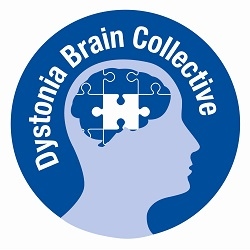Register as a Brain Donor
Give a Gift to Dystonia Research

Why register as a brain donor? Studies that have made important contributions to dystonia would not have been possible if volunteers had not decided in advance to donate their brains to research. Brain donation provides the opportunity to contribute to the field of dystonia research for future generations.
The DMRF works in partnership with the Harvard Brain Tissue Resource Center (HBTRC) at McLean Hospital in Belmont, Massachusetts to assist people interested in registering as brain donors. The HBTRC maintains a private collection of brain tissue from individuals with all forms of dystonia. The DMRF also serves as the administrative center for the Dystonia Brain Collective, which processes tissue requests from researchers for dystonia-related studies.
Click here to download a pamphlet about the brain donor program or read more below.
Giving scientists the opportunity to study brain tissue is a crucial step toward developing improved therapies and a cure for dystonia in all its forms. Brain donation provides the opportunity to contribute to the field of dystonia research in a practical, tangible way that will assist researchers working today and resonate in future generations.
Volunteering your brain to science so that researchers can learn about dystonia is the greatest donation to research an individual can make. By combining brain donation with your monetary support, you multiply your assistance to the progress of dystonia research immeasurably.
Most religious organizations fully accept brain donation. Tissue donation embodies the highest principles upon which all religions are based: generosity, compassion, and love.
The DMRF works in partnership with the Harvard Brain Tissue Resource Center (HBTRC) at McLean Hospital in Belmont, Massachusetts to assist people interested in registering as brain donors.
- Request additional information from the DMRF by:
– completing this form - or Contact DMRF at 800-377-3978
- or Email: [email protected]
- or, download and print the form and return it by mail, fax, or email.
Your donor information remains confidential, and you have the right to withdraw from the program at any time.
No. In fact, we need brain donations from persons who have dystonia and blood relatives who may be gene carriers but are not manifesting symptoms. The latter are used for comparison purposes and are referred to as “control” brains. So please encourage your biological family members to pre-enroll as donors.
It may, depending on how long the procedure takes for retrieving the donated organs and how long the donor was on a respirator.
No, the Harvard Brain Tissue Resource Center (HBTRC) is not equipped to accept “whole body” donations and, usually, most facilities that do accept whole body donations will not allow for the removal of brain tissue for research purposes. They want the body to be intact. So that means that individuals must decide whether they would like to donate their brain and help to advance dystonia research, or donate their entire body to science.
No. You can live in any part of the contiguous United States. (Unfortunately, the program is not able to accommodate donors in Alaska or Hawaii). The Harvard Brain Tissue Resource Center (HBTRC) works in conjunction with pathologists and funeral homes throughout the United States, and they are the ones who actually collect the brain. It is very important that the HBTRC is notified by your next-of-kin or legal representative as soon as possible when death is imminent or has occurred. They are available to accept these emergency calls 24 hours a day, 7 days a week, 365 days a year. Once notified of a donor’s passing, the HBTRC staff will make the arrangements for the brain recovery to take place. The person notifying the HBTRC must grant permission for the recovery to take place and for the donor’s medical records to be sent to the HBTRC. The brain must be recovered and arrive at the HBTRC within 24 hours from the time-of-death in order to be of value to researchers. The tissue will then be preserved and stored, and made available for analysis by interested researchers.
No. The DMRF assumes any and all costs, so there is no expense to the family.
No. You may have any sort of service or remembrance that you and your family desire. The brain recovery is done discreetly and does not cause any disruption in those plans, or cause any change in the donor’s outward appearance.
No. The HBTRC will coordinate the brain recovery with a local pathologist in the donor’s area. The pathologist will discreetly remove the entire brain and then transport it to the HBTRC. The body remains in the donor’s local area.
The Harvard Brain Tissue Resource Center (HBTRC) no longer requires that brain donors test negative for Covid-19 before accepting their tissue.
Yes. If someone has had deep brain stimulation (DBS) surgery or another type of brain surgery, they can register.
Yes. We regret that if a person tests positive for HIV or for hepatitis they cannot be a brain donor. Additional circumstances may also preclude someone from becoming a brain donor.



